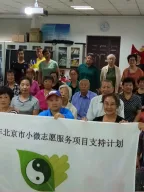
Enhancing employability through vocational training in Tanzania
Youth unemployment and underemployment represents a major challenge for the SDGs. Many global South countries have large youth demographics but over 95% of young workers in developing economies work in the informal sector with low job stability and quality. Through using specialist volunteers, VSOs EEVT programme supports and complements existing vocational training services to increase the capacities of unemployed and underemployed youth. And through youth volunteers that are able to interact with young job seekers on their own terms, valuable soft skills training - including on CV writing, cover letters and interview skills, is delivered, meeting important needs of young job seekers that are often not met through official services. As a result, young Tanzanians have increased their chances of finding a better quality job, increasing wellbeing and quality of life, and lowering the social costs of underemployment.
- The design of the programme included specific focus on breaking down the gendered division of labour. This included providing career guidance and training to women in traditionally male-dominated areas of work and highlighting female role models in advocacy and awareness-raising efforts.






